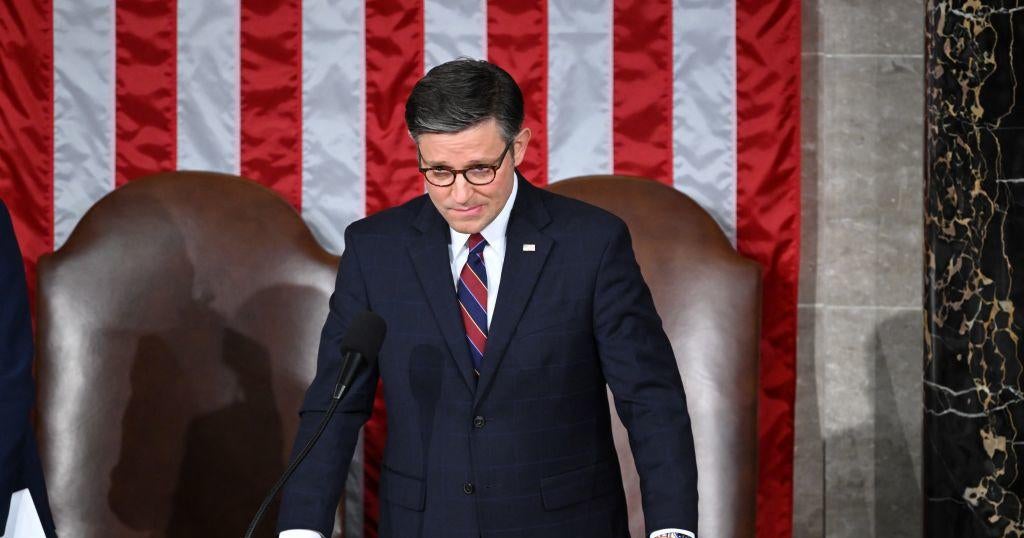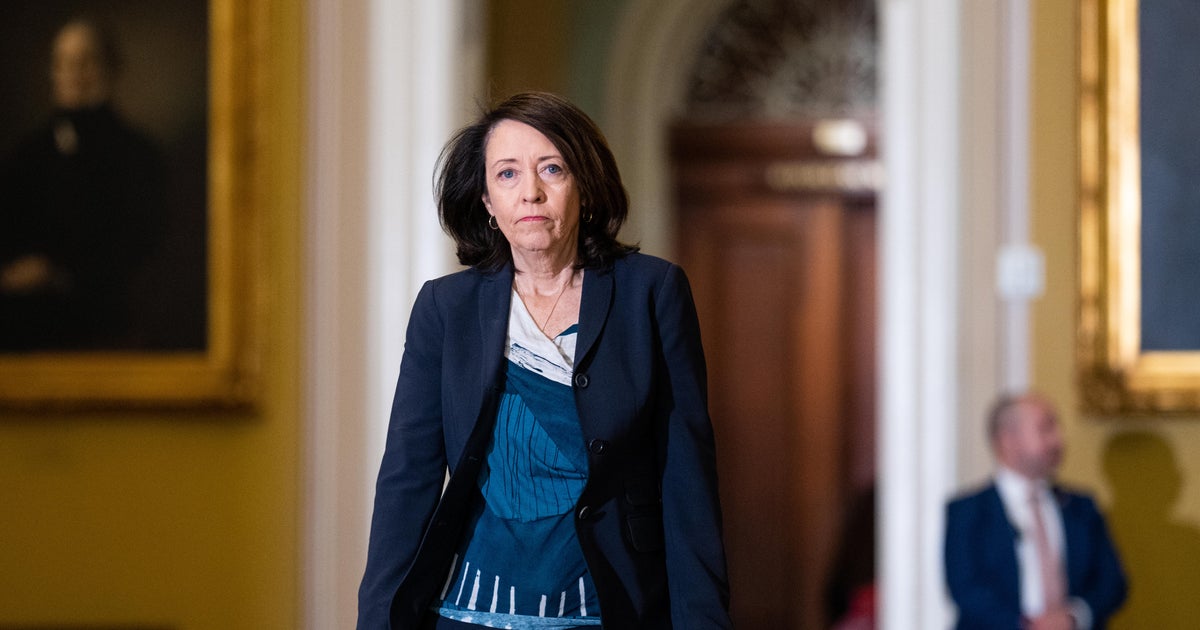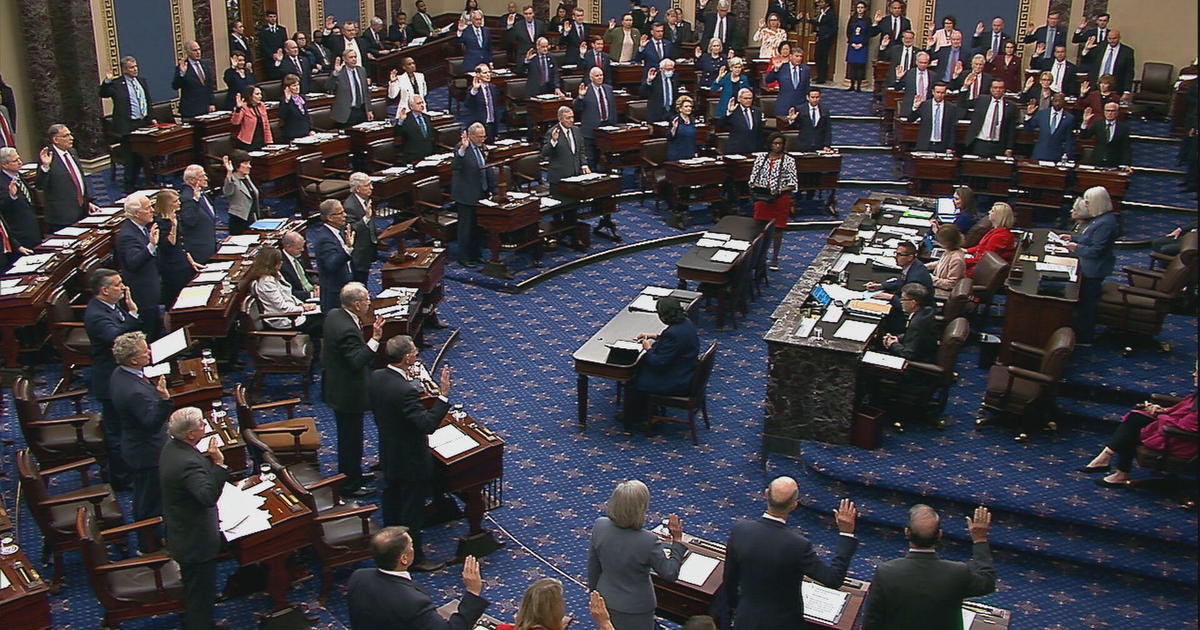After John Lewis' death, Democrats pressure GOP to revisit landmark voting law
Washington — The death of civil rights icon and Congressman John Lewis on Friday has resurrected calls from congressional Democrats for the Senate to take up legislation that seeks to bolster voting rights and roll back the impacts of a Supreme Court decision that gutted a key part of the landmark 1965 Voting Rights Act.
For House Democrats, Senate action on the long-stalled measures is an apt way to honor the legacy of Lewis, who represented Georgia in the House for more than three decades and endured violence and arrest in the fight for voting rights.
"One of the best ways that we could honor him is to make sure that the Voting Rights Act passed, that is sitting over in the Senate and has been there for over 200 days," Congresswoman Karen Bass, a California Democrat who chairs the Congressional Black Caucus, said Sunday in an interview with ABC's "This Week."
The suggestion was echoed by House Speaker Nancy Pelosi in an interview with "CBS This Morning" on Monday, during which the California Democrat said "one way" to pay homage to Lewis is for "the Senate to pass the Voting Rights Act and name it for John Lewis."
"That would be a very appropriate way to honor him almost immediately," Pelosi said.
Congressional efforts to restore voter protections were sparked by the 2013 decision from the Supreme Court in the case Shelby County v. Holder, which gutted a central portion of the Voting Rights Act that required states and counties with a history of race-based voter discrimination, mostly in the South, to receive federal approval, referred to as "preclearance," before changing its voting procedures and laws.
In its 5-4 decision, the court invalidated Section 4 of the civil rights-era law, which outlined the formula that determined which states or localities had to receive clearance from federal authorities before implementing changes to their voting processes.
But the court did not foreclose future congressional action to allow for federal oversight, though it said another formula must be "based on current conditions."
"Our country has changed, and while any racial discrimination in voting is too much, Congress must ensure that the legislation it passes to remedy that problem speaks to current conditions," Chief Justice John Roberts wrote for the majority.
In the wake of the 2013 decision, some states subject to the preclearance requirement before the Supreme Court's ruling have moved to enact more stringent voting laws, while others have severely cut the number of polling places available, moves civil rights groups argue are intended to disenfranchise Black voters.
Texas, for example, announced within 24 hours of the high court's ruling its voter ID law would take effect, while Mississippi and Alabama also enforced similar measures that were previously prohibited due to federal preclearance, according to the Brennan Center for Justice.
After the midterm elections, the Leadership Conference on Human & Civil Rights found that there were 1,173 fewer polling places in 2018 than in 2014, although voter turnout had increased.
In an effort to remedy the Supreme Court's decision, Democrats made strengthening voting rights a key campaign promise of the 2018 midterm elections and quickly unveiled a far-reaching election reform bill after retaking control of the House in January 2019.
The bill, known as H.R. 1, passed along party lines in March 2019. It included measures to expand early voting, create same-day voter registration, save eligible voters from being purged from the rolls and create a pathway for re-enfranchisement for those who have lost voting privileges due to felony convictions. The bill also would make Election Day a holiday for federal workers.
But the proposal was repeatedly slammed by Senate Majority Leader Mitch McConnell, who called it a "power grab" by Democrats and has refused to bring it to a vote on the Senate floor.
The House also passed a bill in December — with support from a lone Republican — to require federal oversight of elections for certain state and local jurisdictions that have a history of voting rights violations, essentially reversing the effects of the 2013 Supreme Court decision. Lewis sat in the chair to gavel in the final vote for the legislation, the Voting Rights Advancement Act.
On Sunday, Senator Patrick Leahy, a Democrat from Vermont who wrote the Senate version of the measure, said he plans to reintroduce the bill and name it for Lewis.
But the White House has threatened to veto the bill, and it's unlikely to gain any traction in the Republican-controlled Senate.
In a statement of administration policy issued ahead of the House vote in December, the White House said the new coverage formula and transparency obligations detailed in the bill "raise serious policy concerns because the federal government would be granted excessive control over state and local election practices."
While McConnell has honored Lewis and his work in the fight for civil rights and as a public servant, the Kentucky Republican has not addressed whether he would move the Democrats' legislation bolstering voting protections. Instead, in an interview with the Wall Street Journal last week, he rebuffed concerns about voter suppression.
"There's very little tangible evidence of this whole voter-suppression nonsense that the Democrats are promoting," he told the Wall Street Journal. "My prediction is African-American voters will turn out in as large a percentage as whites, if not more so, all across the country."
Still, the pressure on Senate Republicans to revisit the Voting Rights Act in the wake of Lewis's death continues to grow.
"The best thing that Senate Republicans can do to honor the legacy, service, sacrifice and sincerity of Congressman Lewis is to pass that Voting Rights Act bill," Congressman Hakeem Jeffries, chairman of the House Democratic Caucus, said.
Remembering Lewis on the Senate floor on Monday, Senate Minority Leader Chuck Schumer said the "law he nearly died for has been gutted by the Supreme Court."
"Congress has the power to restore it," the New York Democrat said, "but only one political party seems interested in doing so."



